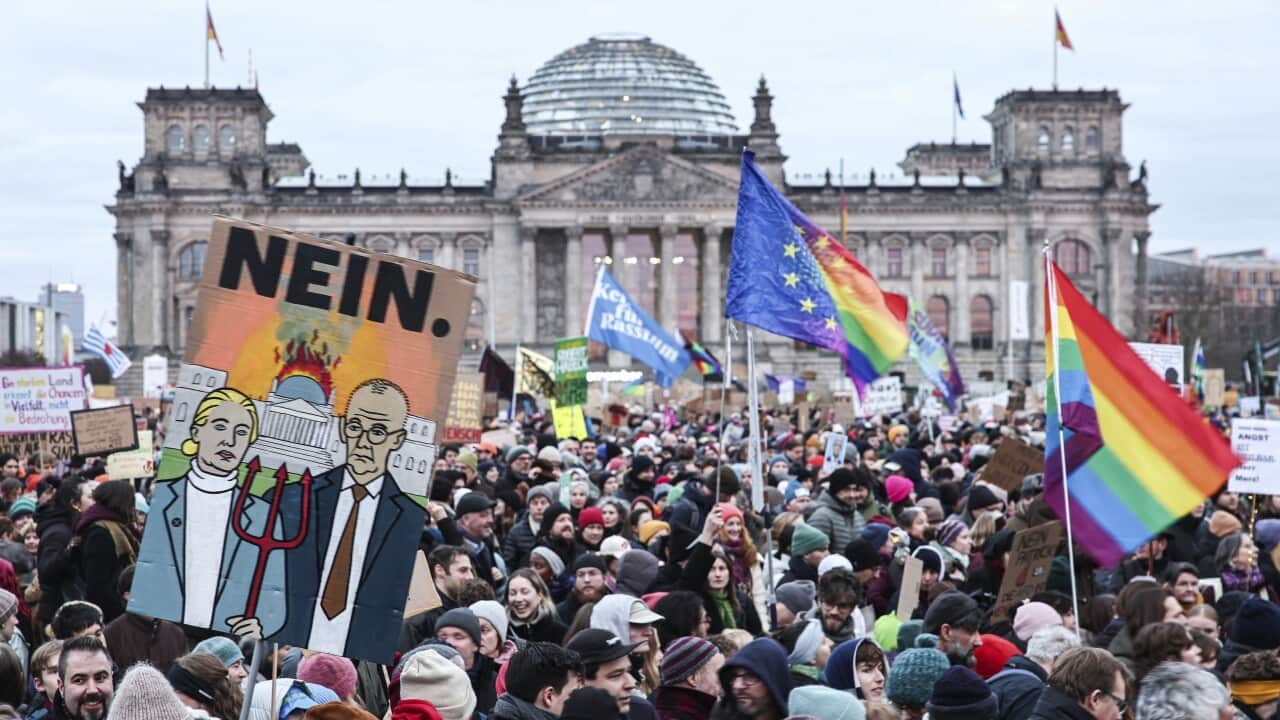Key Points
- Around 160,000 gathered in Berlin to protest far-right influence ahead of the German national election.
- It comes after the conservative party sought support from the far-right AfD for a draft immigration bill.
- Germany's national election is set for 23 February, with the conservatives leading in polls.
Around 160,000 people joined a mass protest to stand as a "firewall" against the far-right in Berlin, with a sea of people stretching from the Reichstag to the conservative Christian Democratic Union (CDU) party headquarters.
Many Germans are angry with CDU leader Friedrich Merz's decision to seek support from the far-right Alternative for Germany (AfD) party to crack down on asylum policy, breaking a taboo dating back to the end of the Second World War against cooperating with the far-right party.
The protesters held banners reading, "We are the firewall, no cooperation with the AfD " and "Merz, go home, shame on you!"
On 29 January, Merz, the conservatives' leader who is tipped to become Germany's next chancellor after , sponsored a draft bill with AfD support.
Senior Social Democratic Party (SPD) leader Rolf Muetzenich warned Merz during a pre-vote debate against any backing from AfD: "It's not too late. This sin will forever be with you, but the door to hell, yes, I am saying the door to hell, we can still close together. You must put the firewall up again, put up the firewall again."
On Friday, Merz tried to push the immigration bill in the lower house but failed to secure a majority as some of the deputies from his own party refused to support it.
Mainstream German parties had previously joined forces to prevent the AfD, which is under surveillance by Germany's security services, from achieving legislative power.
This has been part of a longstanding tradition to isolate the far-right in Germany in the wake of Nazi Germany.
The draft law would have restricted family reunifications for some refugees and called for more people to be refused at the border. Two-thirds of the public support stronger immigration rules, according to a recent poll.
There were also mass protests on Saturday in other German cities, including Hamburg, Stuttgart and Leipzig.

Protesters attend a rally in front of the Brandenburg Gate in Berlin, Germany. Source: EPA / Hannibal Hanschke
The conservatives have been leading nationwide polls for more than two years and are at 30 per cent, according to the latest survey published by poll institute INSA on 25 January, followed by the AfD at 21 per cent.
Chancellor Olaf Scholz's SPD, with 16 per cent, has dropped to third from the first place it achieved in the 2021 election.


